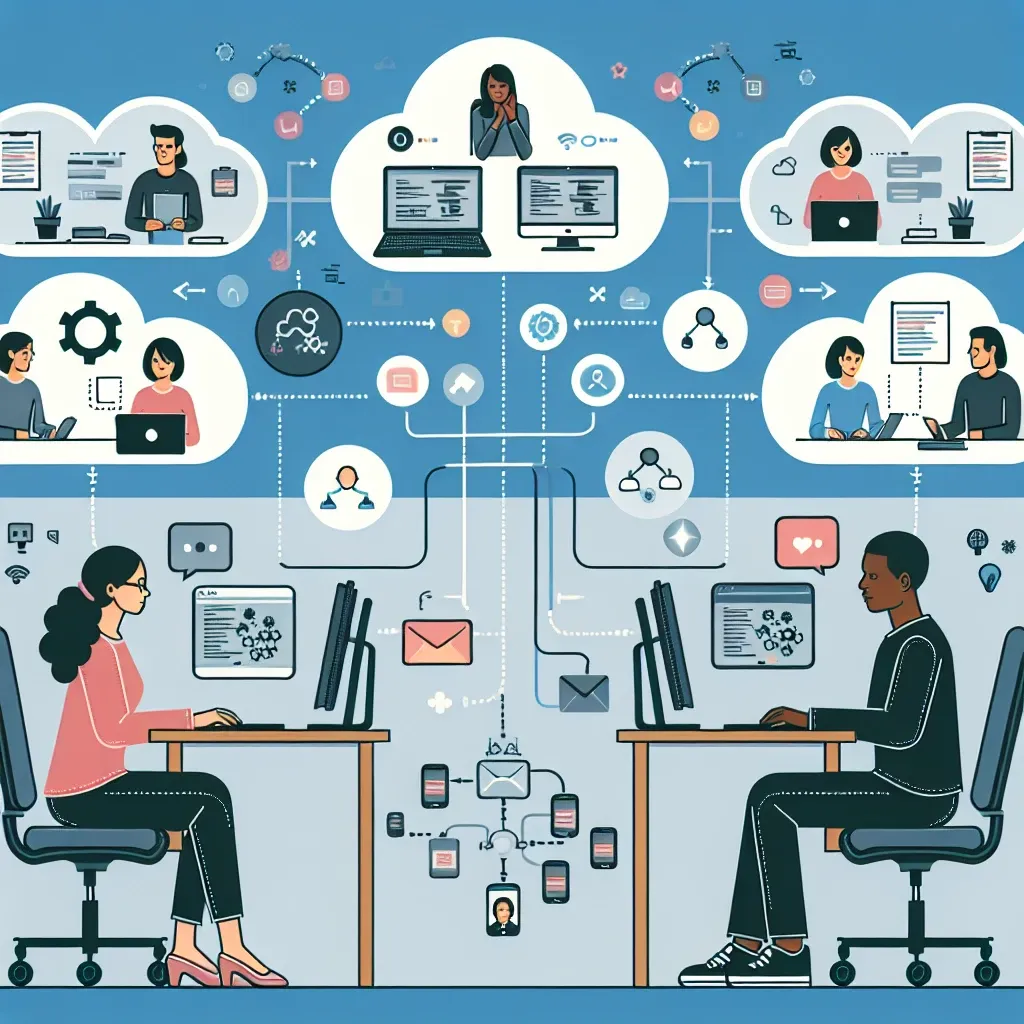Mastering Remote Software Project Management
The rise of remote work has revolutionized the software development landscape. Managing software projects remotely presents unique challenges, but with the right strategies and tools, you can achieve remarkable success. This comprehensive guide provides actionable insights into effectively managing your remote software development teams.
Effective Communication: The Cornerstone of Remote Success
Clear and consistent communication is paramount in remote project management. Misunderstandings can easily arise without face-to-face interaction, leading to delays and errors. To mitigate this:
- Establish Clear Communication Channels: Choose the right tools for different communication needs. Asynchronous communication (email, project management software) is crucial for documenting decisions and progress. Synchronous communication (video conferencing, instant messaging) is vital for real-time collaboration and quick problem-solving.
- Define Communication Protocols: Set expectations for response times, meeting frequency, and preferred methods of communication. This ensures everyone is on the same page and avoids confusion.
- Regular Check-ins: Schedule regular team meetings, both large group and smaller one-on-ones. Use these sessions for updates, problem-solving, and fostering team cohesion.
- Over-Communicate, Not Under-Communicate: In a remote setting, it’s better to err on the side of over-communication. Keep your team informed of progress, challenges, and changes.
Leveraging Collaboration Tools: Enhancing Teamwork
The right tools can significantly improve collaboration and efficiency in remote software projects. Consider these essential tools:
- Project Management Software: Platforms like Jira, Asana, Trello offer task management, progress tracking, and team collaboration features. Choose a tool that integrates well with your team’s workflow.
- Version Control Systems: Git, GitHub, and GitLab are essential for managing code changes, collaborating on development, and ensuring code integrity. These systems enable seamless teamwork on codebases.
- Video Conferencing Tools: Zoom, Google Meet, Microsoft Teams facilitate real-time communication, allowing for face-to-face interaction, brainstorming sessions, and quick problem-solving.
- Instant Messaging Platforms: Slack, Microsoft Teams offer quick communication for urgent issues, sharing updates, and informal team interactions. Ensure clear guidelines about using these platforms for work-related communication.
- Document Collaboration Tools: Google Docs, Microsoft Office 365 allow multiple team members to work on documents simultaneously, ensuring everyone has access to the latest version.
Building a Strong Remote Team Culture
Building a strong team culture is crucial for success, even when working remotely. Consider these factors:
- Foster Trust and Openness: Create a safe space where team members feel comfortable sharing ideas, concerns, and challenges. Encourage open communication and feedback.
- Promote Team Building Activities: Schedule virtual team-building events to foster camaraderie and improve relationships. These activities can help build a sense of community and improve morale.
- Recognize and Reward Achievements: Publicly acknowledge individual and team accomplishments to boost morale and motivation. Show appreciation for hard work and dedication.
- Invest in Employee Well-being: Promote work-life balance and support the well-being of your remote team. Offer resources and support to help them manage stress and maintain a healthy work-life integration.
Effective Project Planning and Tracking
Robust project planning and meticulous tracking are crucial for success. Adapt your processes to the remote environment:
- Detailed Project Plans: Create comprehensive project plans outlining tasks, timelines, responsibilities, and milestones. Ensure everyone understands their roles and responsibilities.
- Regular Progress Tracking: Monitor progress regularly using project management tools and regular check-ins. Address any roadblocks or delays promptly.
- Agile Methodologies: Consider adopting agile methodologies like Scrum or Kanban to adapt to changing requirements and enable iterative development in a remote setting.
- Risk Management: Identify and assess potential risks associated with remote work, such as communication breakdowns, technology issues, and time zone differences. Develop mitigation strategies to address these risks proactively.
Overcoming Common Challenges
Managing remote software projects comes with its set of challenges. Learn to overcome them effectively:
- Communication Barriers: Use multiple communication channels, establish clear protocols, and over-communicate to avoid misunderstandings.
- Time Zone Differences: Schedule meetings at times convenient for most team members. Use asynchronous communication for tasks that don’t require immediate responses.
- Isolation and Loneliness: Foster a strong team culture, schedule virtual social events, and encourage regular interaction to combat isolation.
- Technology Issues: Provide adequate technical support and ensure your team has the necessary equipment and software to work effectively.
By implementing these strategies and embracing the right tools, you can effectively manage software projects remotely, building high-performing teams and delivering successful projects, regardless of geographical location. Remember that consistent communication, strong team culture, and effective project management tools are your keys to success in the remote software development world. For more information on project management best practices, visit this helpful resource.

